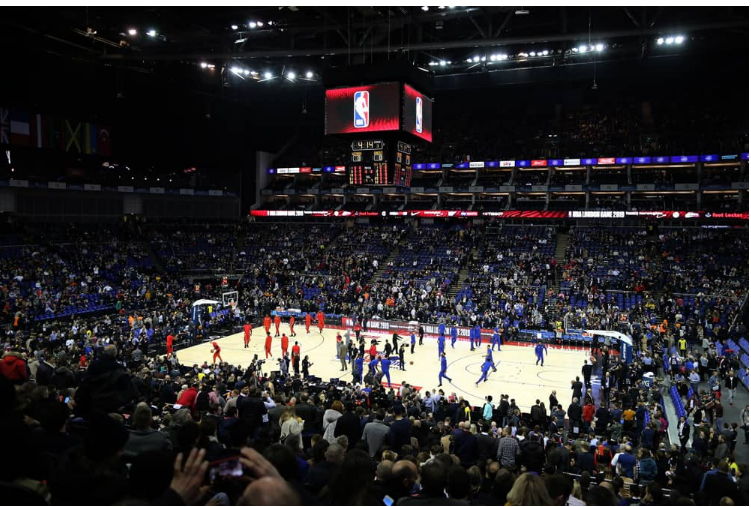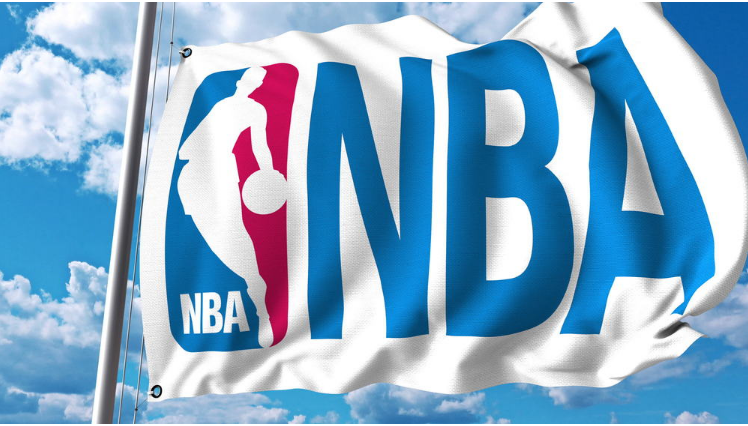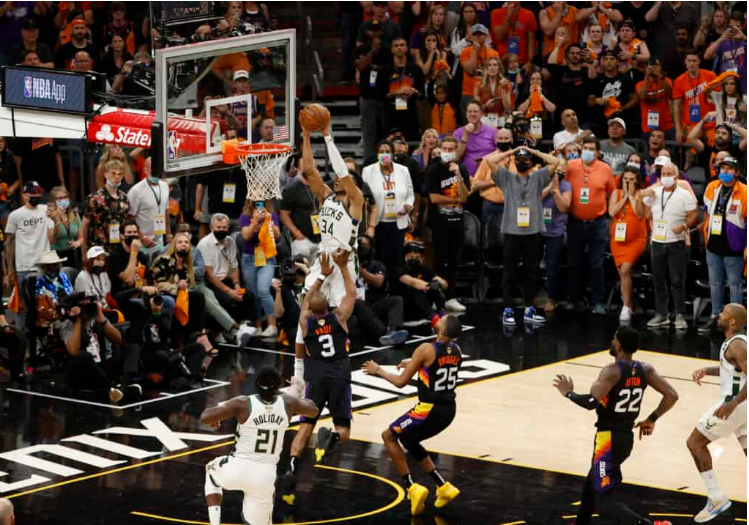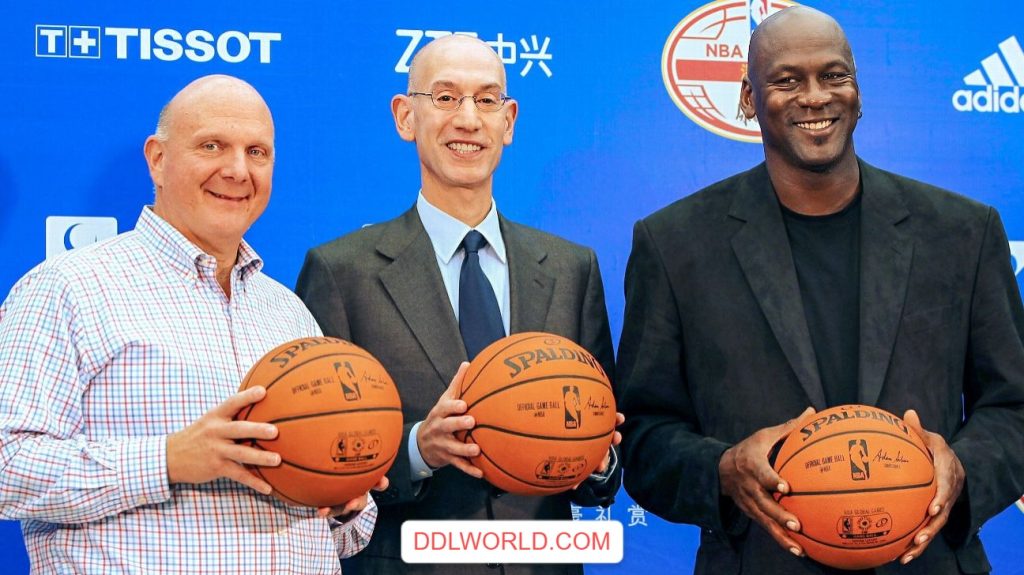The National Basketball Association (NBA) is a private, non-profit organization and is not owned by any single individual or entity. It comprises 30 member teams, each of which is independently owned and operated. The league is governed by a Board of Governors, which comprises one representative from each of the 30 teams. Decisions regarding the league’s rules, policies, and regulations are made by the Board of Governors, in consultation with the Commissioner of the NBA.
As of 2023, the NBA is a privately held company and does not have a single owner. It is governed by a Board of Governors consisting of one representative from each of the 30 teams.
How Is The NBA Structured?
The NBA is structured as a private, nonprofit, unincorporated association. The association is governed by a Board of Governors, which is made up of one representative from each of the 30 NBA teams. The Board of Governors is responsible for making important decisions regarding the league, such as approving new franchises, setting the salary cap, and making changes to the rules of the game.

The day-to-day operations of the NBA are overseen by the Commissioner, who is appointed by the Board of Governors. The Commissioner is responsible for enforcing the rules of the league, negotiating television and sponsorship deals, and promoting the NBA brand muratpaşa escort globally.
The NBA also has a Players Association, which is a union that represents the interests of the players. The Players Association is responsible for negotiating the Collective Bargaining Agreement (CBA) with the NBA, which outlines the terms of employment for the players, including their salaries, benefits, and working conditions. Overall, the NBA is structured as a complex network of teams, players, executives, and other stakeholders who work together to ensure the success and growth of the league.
What company owns the NBA?
A single company does not own the NBA. It is governed by a Board of Governors, consisting of one representative from each of the 30 teams. The day-to-day operations of the league are overseen by the Commissioner, who is appointed by the Board of Governors. The NBA is structured as a private, non-profit, unincorporated association and is not publicly traded.

A single company does not own the NBA. It is governed by a Board of Governors, which consists of one representative from each of the 30 teams. The Board of Governors is responsible for making important decisions regarding the league, such as approving new franchises, setting the salary cap, and making changes to the rules of the game. The day-to-day operations of the NBA are overseen by the Commissioner, who is appointed by the Board of Governors.
Who Are The NBA Team Owners?
The NBA is composed of 30 teams, each of which is owned by a different individual or group of individuals. Some of the notable NBA team owners include:
- Steve Ballmer (Los Angeles Clippers)
- Tillman Fertile (Houston Rockets)
- Michael Jordan (Charlotte Hornets)
- Mark Cuban (Dallas Mavericks)
- Joseph Tsai (Brooklyn Nets)
- Glen Taylor (Minnesota Timberwolves)
- Josh Harris and David Blitzer (Philadelphia 76ers)
- Dan Gilbert (Cleveland Cavaliers)
- Wesley Edens and Marc Lasry (Milwaukee Bucks)
- Ted Leonsis (Washington Wizards)
These are just a few examples of the NBA team owners. There are many more individuals and groups who own NBA teams, each of whom brings unique experiences, perspectives, and expertise to the league.
How Do You Become An NBA Team Owner?
Becoming an NBA team owner is a complex process that involves a significant investment of time, money, and resources. Here are the steps to becoming an NBA team owner:
Build wealth: The first step to becoming an NBA team owner is to build significant wealth. NBA team ownership is a high-stakes investment, and most teams sell for hundreds of millions of dollars or more.
Identify a team for sale: The next step is to identify a team that is for sale. This can be done by monitoring news and rumors about team sales, or by contacting the NBA directly to inquire about teams that may be available.
Conduct due diligence: Once you have identified a team for sale, you will need to conduct due diligence to ensure that it is a good investment. This may include reviewing financial statements, assessing the value of the team’s assets, and evaluating the market for NBA franchises.
Submit a bid: If you believe the team is a good investment, you can submit a bid to purchase it. Your bid should include an offer price and any contingencies or conditions that must be met in order for the sale to go through.
Negotiate the purchase: If your bid is accepted, you will need to negotiate the terms of the purchase with the seller. This may include details such as the purchase price, payment terms, and any contingencies or conditions that must be met.
Obtain approval from the NBA: Once the terms of the purchase have been agreed upon, you will need to obtain approval from the NBA. The NBA will conduct a background check, review your financial statements, and evaluate your business plan to ensure that you have the resources and experience to be a successful NBA team owner.
Close the sale: If your bid is approved, you can close the sale and become the owner of an NBA team.
This process is just a general overview, and the actual steps to becoming an NBA team owner can vary depending on the specific circumstances of the sale. It is important to seek the advice of a financial advisor, lawyer, and other professional advisors to ensure that you are fully informed and prepared for the challenges and opportunities of NBA team ownership.
List of NBA Team Franchise Majority Owners
| NBA Franchise | Majority Owner | Operating Entities | Owned Since |
| Atlanta Hawks | Tony Ressler | Hawks Basketball, Inc. | 2015 |
| Boston Celtics | Wyc Grousbeck | Boston Basketball Partners | 2002 |
| Brooklyn Nets | Joseph Tsai | J Tsai Sports | 2019 |
| Charlotte Hornets | Michael Jordan | Hornets Sports & Entertainment, Hornets Basketball Holdings, LLC | 2010 |
| Chicago Bulls | Jerry Reinsdorf | Chicago Professional Sports Limited Partnership | 1985 |
| Cleveland Cavaliers | Dan Gilbert | Cavaliers Entertainment LLC | 2005 |
| Dallas Mavericks | Mark Cuban | Dallas Basketball Limited | 2000 |
| Denver Nuggets | Ann Walton Kroenke | Kroenke Sports & Entertainment, Denver Nuggets Limited Partnership | 2000 |
| Detroit Pistons | Tom Gores | Palace Sports & Entertainment, Detroit Pistons Basketball Company | 2011 |
| Golden State Warriors | Joe Lacob | GSW Sports LLC | 2010 |
| Houston Rockets | Tilman Fertitta | Fertitta Entertainment | 2017 |
| Indiana Pacers | Herbert Simon | Pacers Sports & Entertainment, Pacers Basketball, LLC | 1983 |
| Los Angeles Clippers | Steve Ballmer | LAC Basketball Club, Inc. | 2014 |
| Los Angeles Lakers | Jeanie Buss | The Los Angeles Lakers, Inc. | 1979 |
| Memphis Grizzlies | Robert J. Pera | Memphis Basketball LLC | 2012 |
| Miami Heat | Micky Arison | Miami Heat Limited Partnership | 1995 |
| Milwaukee Bucks | Marc Lasry | Milwaukee Bucks, Inc. | 2014 |
| Minnesota Timberwolves | Glen Taylor | Minnesota Timberwolves Basketball Limited Partnership | 1995 |
| New Orleans Pelicans | Gayle Benson | New Orleans Pelicans NBA Limited Partnership | 2012 |
| New York Knicks | James Dolan | The Madison Square Garden Company, New York Knicks, Inc. | 1997 |
| Oklahoma City Thunder | Clay Bennett | Professional Basketball Club LLC | 2006 |
| Orlando Magic | Dan DeVos | RDV Sports, Inc., Orlando Magic, Ltd. | 1991 |
| Philadelphia 76ers | Joshua Harris | Philadelphia 76ers, Inc. | 2011 |
| Phoenix Suns | Robert Sarver | Suns Legacy Partners, LLC | 2004 |
| Portland Trail Blazers | Jody Allen | Vulcan Inc., Trail Blazers, Inc. | 1988 |
| Sacramento Kings | Vivek Ranadivé | Sacramento Kings Partnership Group | 2013 |
| San Antonio Spurs | Peter Holt | Spurs Sports & Entertainment, San Antonio Spurs LLC | 1993 |
| Toronto Raptors | Larry Tanenbaum | Maple Leaf Sports & Entertainment, Toronto Raptors Basketball Club | 1998 |
| Utah Jazz | Ryan Smith | Jazz Basketball Investors, Inc. | 2021 |
| Washington Wizards | Ted Leonsis | Monumental Sports & Entertainment | 2010 |
Why do people decide to become team owners?
People decide to become team owners for a variety of reasons, including:
Passion for the sport: Many people who become team owners are passionate about basketball and want to be more involved in the sport they love.
Financial investment: NBA team ownership is a high-stakes investment that can offer significant financial returns. Many team owners view team ownership as a way to build wealth and diversify their investment portfolio.
Civic pride: Some people become team owners to support their local community and bring a sense of pride to their city. They may believe that owning a professional sports team can help boost the local economy and bring a positive image to their city.
Access to celebrities and high-profile events: Owning an NBA team provides access to high-profile events, such as All-Star games and playoff games, as well as opportunities to interact with celebrities and high-profile figures in the sports world.
Legacy building: For some people, owning an NBA team is an opportunity to create a legacy and leave a lasting impact on the sport and their community.
These are just a few of the reasons why people decide to become NBA team owners. Each person’s motivations are unique and may vary based on their personal and professional goals. However, most team owners share a common goal of wanting to support the sport and contribute to its growth and success.
Richest NBA Owners And Their Respective NBA Teams
As of 2021, here is a list of some of the richest NBA owners and their respective teams:
- Steve Ballmer – Los Angeles Clippers ($75 billion)
- Tillman Ferrite – Houston Rockets ($3.3 billion)
- Michael Jordan – Charlotte Hornets ($1.9 billion)
- Mark Cuban – Dallas Mavericks ($4.3 billion)
- Joseph Tsai – Brooklyn Nets ($15.7 billion)
- Glen Taylor – Minnesota Timberwolves ($2.5 billion)
- Josh Harris and David Blitzer – Philadelphia 76ers ($1.9 billion each)
- Dan Gilbert – Cleveland Cavaliers ($7.4 billion)
- Wesley Eden’s and Marc Larry – Milwaukee Bucks ($1.9 billion each)
- Ted Leonsis – Washington Wizards ($1 billion)
These are just a few examples of wealthy NBA owners, and there are many other individuals and groups who own NBA teams and have substantial financial resources. The net worth of NBA owners can fluctuate over time, and this list may not be entirely up-to-date or accurate.
Demonstrating Your Skills And Plan
If you are looking to demonstrate your skills and plan for becoming an NBA team owner, here are some steps you can take:
Build your knowledge of the sport and the business of basketball: It is important to have a deep understanding of the sport of basketball and the business of running an NBA team. Read books, articles, and reports about the NBA and its teams. Attend games, both in person and on TV, and analyze the strategies used by successful teams.
Network with people in the industry: Building relationships with individuals in the basketball industry, such as current team owners, executives, and players, can help you gain valuable insights into the business of basketball and make valuable connections.
Develop a business plan: A well-written business plan can help demonstrate your skills and your plan for becoming an NBA team owner. Your plan should include a detailed financial analysis, a marketing plan, and a vision for the future of the team.
Show your commitment: Demonstrate your commitment to becoming an NBA team owner by taking concrete steps towards that goal. This might include investing in a minor league team or starting a basketball league in your community.
Build wealth: Building significant wealth is a key factor in becoming an NBA team owner. Make smart financial investments, work hard to build your net worth, and consider seeking advice from a financial advisor.
Show your leadership skills: As an NBA team owner, you will need to be a strong leader who can inspire and motivate your team, as well as make difficult decisions when necessary. Demonstrate your leadership skills by volunteering for leadership roles in your community, starting your own business, or taking on leadership roles in your current workplace.
By taking these steps, you can demonstrate your skills and your plan for becoming an NBA team owner and increase your chances of success in this competitive and challenging field.
What do team owners do?
Team owners in the NBA are responsible for a wide range of tasks and responsibilities, including:

Financing and funding: Team owners are responsible for providing the financial resources needed to purchase and operate an NBA team. They must also ensure that the team has sufficient funds to pay for expenses such as player salaries, facilities, and staff.
Hiring and managing staff: Team owners must hire and manage key staff members, such as a general manager, coach, and other executives, to run the day-to-day operations of the team.
Building and maintaining the team: Team owners are responsible for building and maintaining a successful team by acquiring and retaining talented players, coaches, and support staff.
Marketing and promoting the team: Team owners must market and promote the team to attract fans and generate revenue. This includes developing advertising campaigns, creating partnerships with local businesses, and hosting events and promotions to build community engagement.
Representing the team: Team owners often serve as the public face of their team, representing the team at official events and public speaking engagements.
Making strategic decisions: Team owners must make important strategic decisions about the future of the team, such as choosing coaches and players, developing game strategies, and investing in new technologies and facilities.
Maintaining the team’s financial stability: Team owners must maintain the financial stability of the team by carefully managing its budget, tracking its expenses, and making smart investments to generate revenue.
These are just a few of the tasks and responsibilities that NBA team owners must take on. Owning an NBA team is a demanding and complex job, and team owners must have strong business skills, a passion for basketball, and the ability to make difficult decisions in a fast-paced and competitive environment.
FAQs About Who Owns The NBA
Is the NBA a publicly traded company?
No, the NBA is not a publicly traded company. The league is owned by its member teams, which are privately owned by individuals, groups, or corporations.
Who owns the most NBA teams?
There is no one individual or entity that owns the most NBA teams. The ownership of each team is spread out among a variety of individuals, groups, and corporations.
How much does it cost to buy an NBA team?
The cost to buy an NBA team varies depending on a number of factors, including the team’s financial performance, the size of its market, and the current demand for teams. Prices can range from several hundred million dollars to over $2 billion.
Can anyone become an NBA team owner?
In theory, anyone can become an NBA team owner if they have the financial resources and the necessary qualifications. However, the process of becoming an NBA team owner is competitive, and there are many factors that can impact an individual’s chances of success, including their net worth, business experience, and connections in the industry.
What is the role of the Commissioner of the NBA?
The Commissioner of the NBA is responsible for overseeing the league and ensuring that its rules and regulations are followed. The Commissioner also represents the league in negotiations with players, team owners, and other stakeholders, and is responsible for promoting the league and its teams to the public.
How does the NBA generate revenue?
The NBA generates revenue from a variety of sources, including ticket sales, merchandise sales, broadcast rights, and sponsorships. The league also generates revenue from special events, such as the NBA All-Star Game, and from its partnerships with other organizations and businesses.
Conclusion
In conclusion, the NBA is a professional basketball league that is owned by its member teams. The ownership of each team is spread out among a variety of individuals, groups, and corporations, with no one entity owning the most teams. Becoming an NBA team owner is a demanding and complex process that requires significant financial resources and business experience.
The Commissioner of the NBA oversees the league and ensures that its rules and regulations are followed, while the league generates revenue from a variety of sources, including ticket sales, merchandise sales, broadcast rights, and sponsorships.






